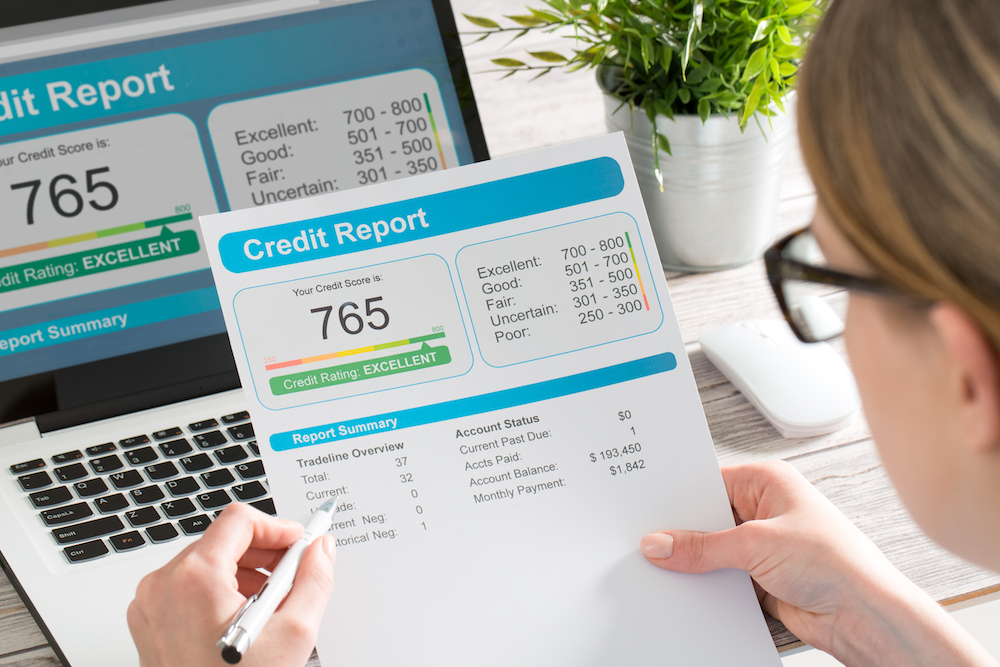Whether you’re applying for a bank loan, taking out a mortgage, or even applying for a job, your credit matters.
Here are the 6 questions you should be asking yourself about your credit (we helped you out a bit by providing the answers).
What Makes Up My Credit Report?
Your credit report shows your trade lines, or your credit accounts, which can include a mortgage, auto loan or credit card. It shows the date your account was opened; the credit limit or loan amount; the balance, and the payment history.
Your credit report also shows each time you or a lender requested to see your credit report. There are “soft” inquiries, which come from non-lenders, like you or an employer, for instance (these do not affect your credit score). And then there are “hard” inquiries, which come from potential lenders (these do affect your credit score).
A large number of hard inquiries will drop your credit score, since it means you are a greater risk. Why? People who have six inquiries or more on their credit reports are eight times more likely to declare bankruptcy than those without any inquires. The good news here is that “Your FICO score considers all inquires within a 45-day period for a mortgage, an auto loan or a student loan as a single credit inquiry.” So if possible, try to get all of your inquiries out of the way at once.
Your credit report will also show information that comes from state and county courts and debt collection agencies. You’ll see things like bankruptcies, foreclosures, and wage garnishments. Your credit report will also show the number of times your accounts have been passed on to collection agencies.
How Can I Get My Credit Report?
You can access your credit report from Equifax, Experian and TransUnion (the three major credit reporting agencies) at AnnualCreditReport.com or by calling 877-322-8228.
Keep in mind that it’s best to order your credit report from all three credit reporting agencies (as opposed to just one), since you’ll probably get different information from different agencies. You can get one free copy of your credit report per year from each agency.
Who Can See My Credit Report?
According to the Fair Credit Reporting Act, these are the people who can see your credit report:
- Creditors and potential creditors
- Student loan lenders
- Utility companies
- Collection agencies
- Judgment creditors
- Insurance companies
- Car insurance companies
- Government agencies
- Landlords
- Mortgage lenders
- Entities with a court order
- Employers
But don’t be alarmed. Yes, all of these people and entities can see your credit report. But they get a different version of your report, depending on what pertains to them.
For instance, potential employers can see your credit report, but they don’t see the same thing as potential lenders. They can’t see your credit score or account numbers. And you must give written permission in order for your employer to check your credit.
What Should I Look for on My Credit Report?
There are a number of things you should be looking for when you check your credit report. Most importantly though, be on the lookout for things that don’t ring any bells, like accounts that aren’t yours or late payments that you are certain you made on time.
What Do Potential Lenders Look for on My Credit Report?
Opening multiple lines of credit at the same time is a red flag to potential lenders. What else might scare them? A housing short sale or cash advances. Also, consistent minimal payments don’t look good, since it shows that you are just barely getting by.
What Makes Up My Credit Score?
Think of your credit score as a number that sums up your (recent) financial history. That number represents your creditworthiness and tells potential lenders whether or not you are someone they should lend to. The score ranges from 300 to 850 and is made up of five things, which are each weighed differently:
- Payment history: 35%
- Your total debt: 30%
- Length of credit history: 15%
- How many types of credit in use: 10%
- Account inquiries: 10%
Bottom Line
Check your credit score on a regular basis. And be sure to review your credit report at least once a year, checking for any information that’s inconsistent with reality.
Need some help reviewing your credit report (or increasing your credit score)? Give us a shout. We’re only a phone call (or an email) away.





